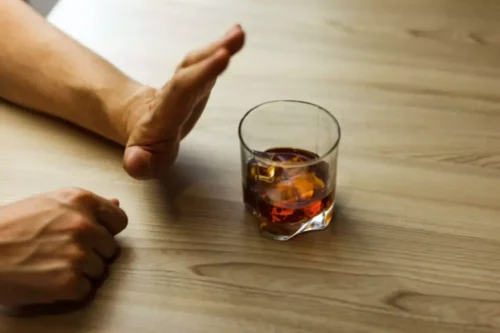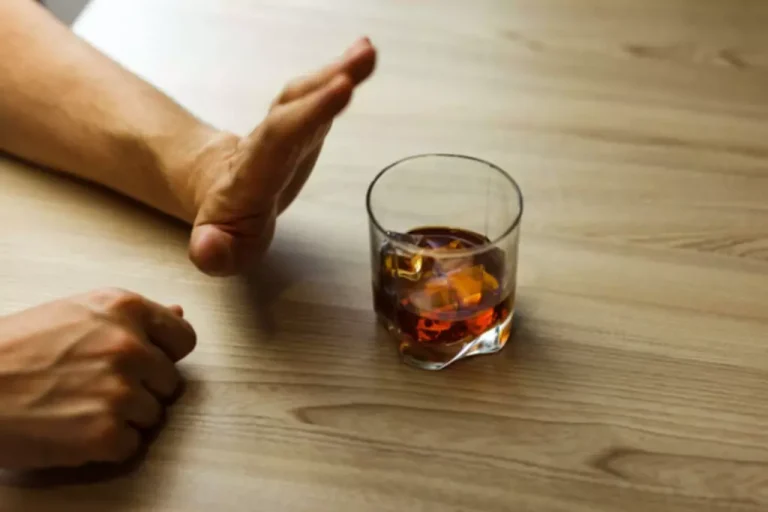
If someone feels that they have developed a dependence on CBD and are struggling to stop using it despite negative consequences, they should seek help and support from healthcare professionals. Addressing any underlying issues and finding healthier coping mechanisms is essential. While such issues can be managed when taking a prescribed medication under doctor supervision, self-administered CBD could potentially have the same harmful effects, particularly since it can be difficult to determine how much CBD many products actually contain. According to one study, 43% of commercially-available CBD products contain substantially more cannabidiol than indicated on the label. Studies also suggest that CBD may have potential in the treatment of depression.

World Health Organization’s Stance on CBD

The evidence points towards is cannabidiol addictive CBD being a non-addictive substance, with potential therapeutic properties for treating certain addictions. However, as with all substances, it’s recommended that individuals consult with their healthcare providers before beginning a CBD regimen. At the same time, FDA recognizes the potential therapeutic opportunities that cannabis or cannabis-derived compounds could offer and acknowledges the significant interest in these possibilities. FDA continues to believe that the drug approval process represents the best way to help ensure that safe and effective new medicines, including any drugs derived from cannabis, are available to patients in need of appropriate medical therapy. The Center for Drug Evaluation and Research (CDER) is committed to supporting the development of new drugs, including cannabis and cannabis-derived drugs, through the investigational new drug (IND) and drug approval process (see Question #16). Thus, available evidence suggests that CBD may functionally regulate the activity of the mesolimbic DA system and counteract the effects of dysregulated dopaminergic transmission induced by drugs such as amphetamine, cocaine, alcohol, or cannabis.
- An inverse correlation of the ratio THC/CBD with the volume of the right HIP was noted.
- Third, the effects of CBD on alcohol relapse were also analyzed in the oral ethanol SA paradigm with some modifications.
- These receptors are part of the endocannabinoid system and regulate many processes, such as sleep, mood, and appetite.
- In addition to mental health benefits, some research indicates that CBD might be helpful for reducing pain, relieving nausea, and treating inflammation.
- The results showed a significant reduction in the number of cigarettes smoked (≈40%) in the CBD inhaler group during the week of treatment, with a trend indicating a reduction after follow-up.
CBD Guides

In contrast, higher doses (10–20 mg/kg) increased ICss thresholds, indicating that brain reward function is decreased by acute administration of CBD. ICss thresholds were lowered by morphine but increased by CBD, suggesting that CBD is unlikely to exhibit abuse potential (Katsidoni et al., 2013) (Table 1). Emerging evidence indicates that TRPV1 inhibition may be effective in treating opioid addiction.
Understanding THC vs CBD addiction
No cognitive defects nor detrimental effects on the psychological condition were observed. Furthermore, participants underwent considerably fewer depressive and psychotic-like symptoms at posttreatment compared to baseline. They showed amelioration in the cannabis-abuse-induced deficits in attentional switching, memory, and verbal learning. These particular findings correlated with increased plasma concentration of CBD (Solowij et al., 2018). Elsewhere, Solowij et al. 2018, pretreatment of CBD (200, 400, and 800 mg, p.o.) failed to alter reinforcing, physiological, or positive impacts of smoked cannabis (Haney et al., 2016) (Table 2). While the currently available evidence converges to suggest that CBD could effectively reduce the rewarding and reinforcing effects of addictive drugs, more preclinical and clinical studies are needed before CBD can be added to the therapeutic arsenal for treating addiction.

Many people use CBD because it may help them sleep better or reduce anxiety without providing the high that THC does.4 If you’re looking for an option you can take daily and not be intoxicated, this may be the right choice. When shopping for a CBD product, it’s incredibly important to read the ingredients and determine if there’s a high concentration of THC in it. Some CBD products contain high amounts of THC, while others only have trace amounts. Some people find that they get a variety of benefits from this product, while others note that they don’t feel any differences. Predicting how everyone will respond to CBD is impossible, so it’s important to learn about the different options and experiences. Whether you plan to use CBD to support general health or as a natural aid in your recovery process, you can do it with confidence, knowing that it is a non-addictive and legal substance throughout the United States.
CBD and Travel: Essential Tips for Using CBD on the Go
These findings could be related, at least in part, to the reduction of the reinforcing and motivational effects of these drugs, as well Sober living house as to the regulation of the withdrawal syndrome. Nevertheless, more studies are needed to precisely explore CBD-mediated regulation of dopaminergic mechanisms involved in drug addiction. Also, another publication showed that CBD (5 and 10 mg/kg, i.p.) did not attenuate the motivation to self-administer cocaine (breaking point) nor the cue-induced cocaine seeking in rats after a withdrawal period (Mahmud et al., 2017). These apparently contradictory results could be related, at least in part, with differences in the experimental design or in the administered doses of cocaine and CBD. However, the available information suggests that CBD could be a useful tool for the treatment of cocaine use disorder although additional studies are warranted. The current review aimed to provide a detailed and up-to-date systematic literature overview of studies that investigated the efficacy of CBD treatment for schizophrenia and/or SUD.
- One of the most representative examples is CUD for which numerous clinical trials evaluated the effects of CBD, mostly in combination with THC, on withdrawal symptoms, craving, and cannabis use.
- However, studies that include individuals with more symptoms at baseline can show greater reductions after treatment.
- No animal study was found on hallucinogen-, sedative-, tobacco-, or alcohol-addictive behaviors.
- It impacts the ECS — a system responsible for maintaining homeostasis in the body — but it doesn’t trigger the same dopamine surge that typically results in addiction.
- In summary, to date few studies have attempted to demonstrate the efficacy of CBD in opioid addiction.
- CBD gummies and other products containing CBD are generally derived from hemp plants, which have low THC levels (less than 0.3% in the United States) and higher CBD levels.
Mental Health Treatment at The Ranch PA
This means you may need to increase the dosage to achieve the same level of relief or benefits that you initially experienced with a lower dose. Existing studies suggest that =https://ecosoberhouse.com/ most people will tolerate it well and that it does not lead to addiction in the same way that substances like opioids or stimulants can. It’s essential to note that some CBD products may contain trace amounts of THC, and the quality and contents of CBD products can vary.
Thus, CBD does not appear to have an impact on stimulants’ rewarding effect, but one study suggests that it may influence addictive behaviors during the relapse phase. The American Cancer Society says that some evidence points to CBD’s anticancer properties and benefits in managing cancer treatment side effects. If you live in a state that hasn’t yet legalized medical cannabis or these products are unavailable, you can still benefit from products containing industrial hemp-derived CBD. Moreover, CBD’s influence on the rewarding characteristic of morphine in the CPP paradigm has also been evaluated.
- Regarding the safety of CBD, Taylor et al., 2018, in phase I, randomized, double-blind, placebo-controlled study, revealed that CBD was commonly well tolerated.
- A. The FDA has sent warning letters in the past to companies illegally selling CBD products that claimed to prevent, diagnose, treat, or cure serious diseases, such as cancer.
- Additionally, it’s advised to avoid pairing marijuana with alcohol, prescription medication, supplements, central nervous system depressants, antiviral drugs or serotonin reuptake inhibitors.
- The U.S. Drug Enforcement Administration (DEA) considers CBD derived from cannabis a Schedule 1 drug.
- A. We understand that parents are trying to find treatments for their children’s medical conditions.
What about CBD oil with THC in it?
Regarding the interaction with CB1R, CBD was first thought to be an antagonist (Thomas et al., 2007; Pertwee, 2008), but recent results suggested that CBD could act also as a non-competitive negative allosteric modulator of CB1R (Laprairie et al., 2015; Tham et al., 2019). Interestingly, a statistical meta-analysis of all present information describing direct effects of CBD at cannabinoid receptors concluded that there is no direct CBD–CB1R interaction that may account for the reported changes in endocannabinoid signaling (McPartland et al., 2015). In summary, available evidence suggests that CBD-induced modulation of drug reinforcing and motivational properties could be mediated, at least in part, by the functional regulation of the opioidergic system. In 2017, it was estimated that over 30 million individuals present an SUD leading to more than 31 thousand years lived with disability (YLDs) with a worrying increase (16.7%) over the previous decade (GBD 2017 Disease and Injury Incidence and Prevalence Collaborators, 2018).
Health Conditions
In 2018, the Food and Drug Administration (FDA) removed CBD from its list of controlled substances. Your body can absorb inhaled compounds directly from your lungs into your bloodstream. As such, smoking CBD-dominant strains of cannabis or vaping CBD oil is the fastest way to experience the effects.